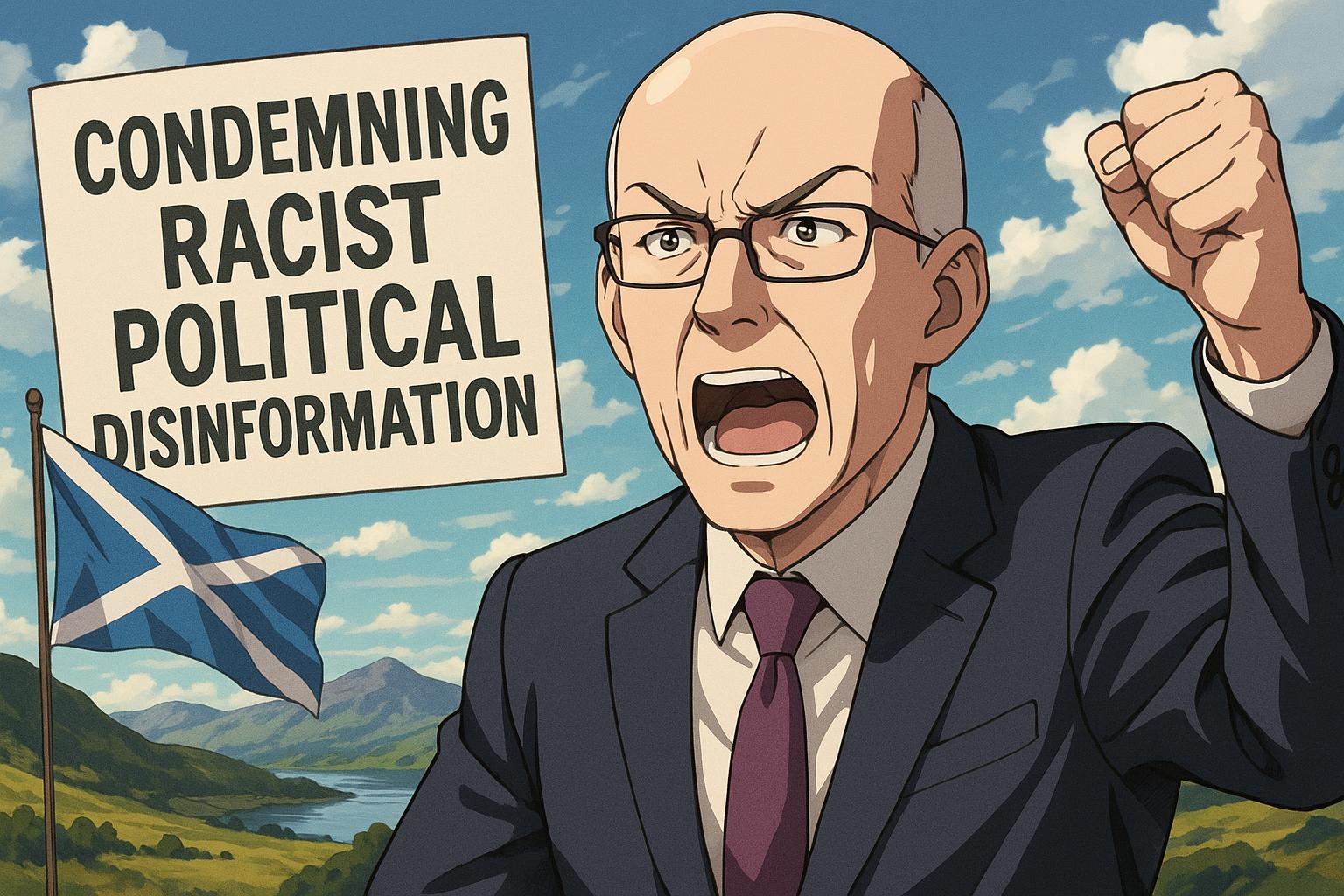Scotland's political landscape is increasingly volatile as First Minister John Swinney has turned his attention to alleged "racist" disinformation disseminated by opposition forces, particularly targeting Scottish Labour leader Anas Sarwar. This ongoing drama underscores the persistent tensions over race, representation, and misinformation in the realm of Scottish politics.
Swinney has voiced his outrage at an ad that claims Sarwar prioritises the Pakistani community in Scotland, portraying his advocacy for political inclusivity as skewed. During a recent campaign stop in Hamilton, Swinney condemned the message as an attempt to exploit racial identity for political gain, asserting that it deceives voters about Sarwar's actual intentions. He urged Meta, Facebook's parent company, to take decisive action, declaring the ad's content unacceptable. “What’s important here is that the advert… distorts and misrepresents the true nature of the matter,” he stated, demanding accountability from social media platforms that allow such divisive content to flourish.
The issue of political disinformation is reaching a critical pitch within Scotland. Swinney's earlier concerns highlight how false narratives can distort public perception and undermine informed decision-making. He equated the proliferation of misleading information to a degradation of democratic engagement, stating, “People can’t make informed judgments because of the rampant disinformation.” This highlights an essential conversation regarding the responsibility of social media companies to curb harmful misinformation, particularly given its role in exacerbating social tensions.
Further complicating this political struggle is the approaching by-election for the South Lanarkshire seat, set against a backdrop of tight competition among Labour, the SNP, and opposition parties. Swinney has urged voters to be wary of the threats posed by far-right encroachment, effectively rallying support for the SNP as a bulwark against emerging radical elements in Scottish politics. His claim that various demographics should not be reduced to political fodder indicates a broader commitment to combating racism and discrimination in public discourse.
In a contrasting response, a spokesperson for the opposition sought to frame this controversy as a deflection strategy used by Swinney and Sarwar, arguing that their focus on identity politics obscures the pressing governance issues facing Scotland. This sentiment reflects a view that critical matters such as health service deficiencies and educational concerns are being eclipsed by identity-based politics. Sarwar, in turn, has denounced the advertisement as a blatant affront aimed at undermining his leadership credibility within Scottish Labour.
The tumult surrounding this advertisement coincides with a wider demand for decisive action against misinformation on social media. Swinney has acknowledged similar exploitative incidents, such as a misleading report from Stirling that sought to incite sectarian hatred through false claims about violence. He reinforced the necessity for social media platforms to adopt stringent policies against harmful content, framing public safety and the preservation of civil dialogue as non-negotiable priorities.
As the by-election looms near, discussions of accountability in political messaging and the urgency to tackle misinformation continue to dominate the political narrative. The conflict among competing political agendas, while ostensibly addressing local issues, reveals a deeper societal dilemma—how to navigate a landscape fraught with bias while striving for inclusivity in political discourse.
In a time when disinformation poses a considerable risk to democratic integrity, the urgency of these discussions is pivotal not just for political strategy but for the very essence of civil society. Swinney’s call for vigilance resonates beyond immediate political rivalries, striking at the core of what constitutes ethical and equitable political discourse in Scotland and beyond.
Source: Noah Wire Services
